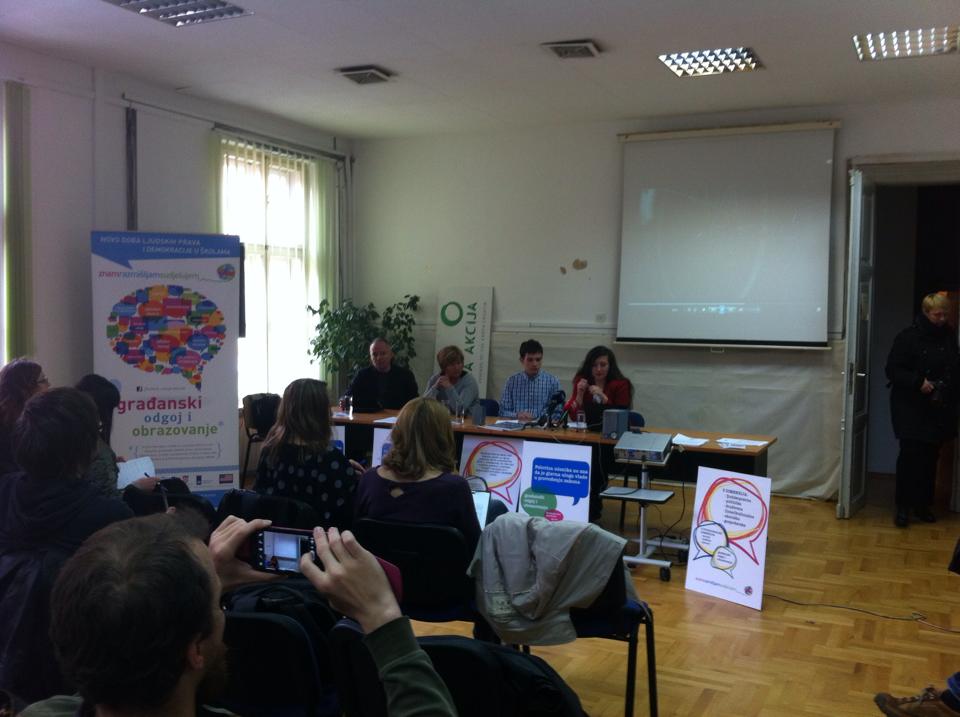A civil society association promoting a systematic and well thought-out introduction of education for human rights and democratic citizenship in schools, which goes by the acronym GOOD, on Tuesday called for support to its campaign for the introduction of civics in schools, prompting a response from the GROZD association which said that civic education was a new platform for imposing an ideology on pupils.
GOOD representatives said their campaign “I know, I think, I act” was a new stage in the association’s years-long work on advocating the introduction in schools of content and values promoting human rights, political literacy, participation, interculturalism, ecology and economic justice.
The campaign coordinator, Emina Buzinkic, said the campaign would be conducted during the spring and summer until the start of the next school year.
The association’s representatives recalled that a national curriculum for education for human rights and democratic citizenship was adopted in 1999 and that so far it had been mostly implemented through projects and extra-curricular activities, failing to ensure development of civic competencies for all pupils and not being available to all pupils.
In the previous school year, 12 schools experimentally introduced the civics curriculum covering six dimensions: a human rights dimension, a political dimension, a social dimension, and intercultural, ecological and economic dimensions.
Civics should help young people to develop into active, informed and responsible citizens who respect others, who think critically and who, based on such thinking, actively participate in the life of a community, GOOD representatives said.
The news conference organised by GOOD prompted a news conference by another civil society association, GROZD, which opposed GOOD’s initiative.
“We disagree with the way civics is being introduced in schools,” GROZD president Kristina Pavlovic said.
She said that civics was a new platform for imposing an ideology in schools following the failure to impose it through health education.
“What about the two-thirds of citizens and parents who voted ‘yes’ in the referendum on the constitutional definition of marriage, on whom an ideology is being imposed, first through health education, and now through civic education,” Pavlovic said.
She recalled Education Minister Zeljko Jovanovic’s saying that associations should keep out of schools. “That obviously referred only to some of the associations, while some other associations are allowed to implement their projects in schools considering that there are about a hundred associations which implement their projects in schools and are all in agreement with the minister when it comes to the world view,” said Pavlovic.
